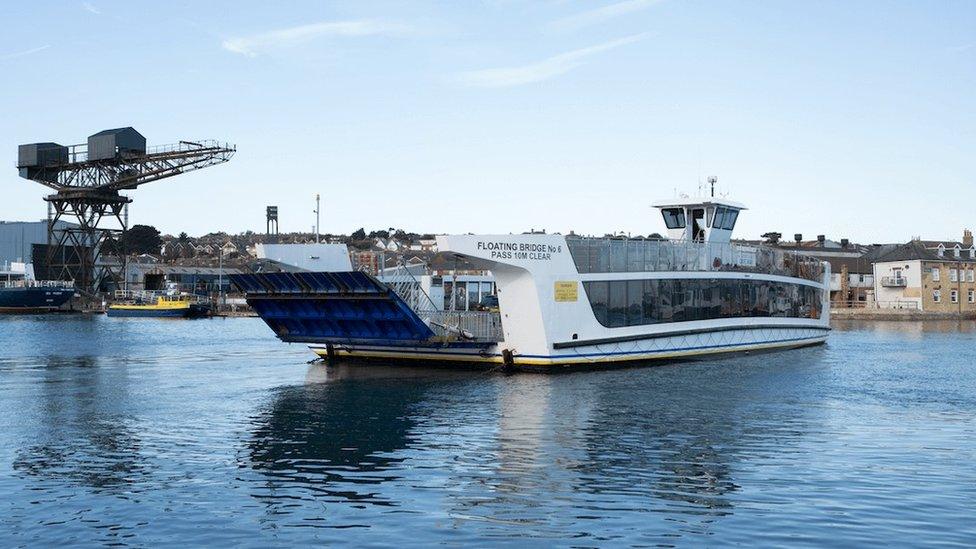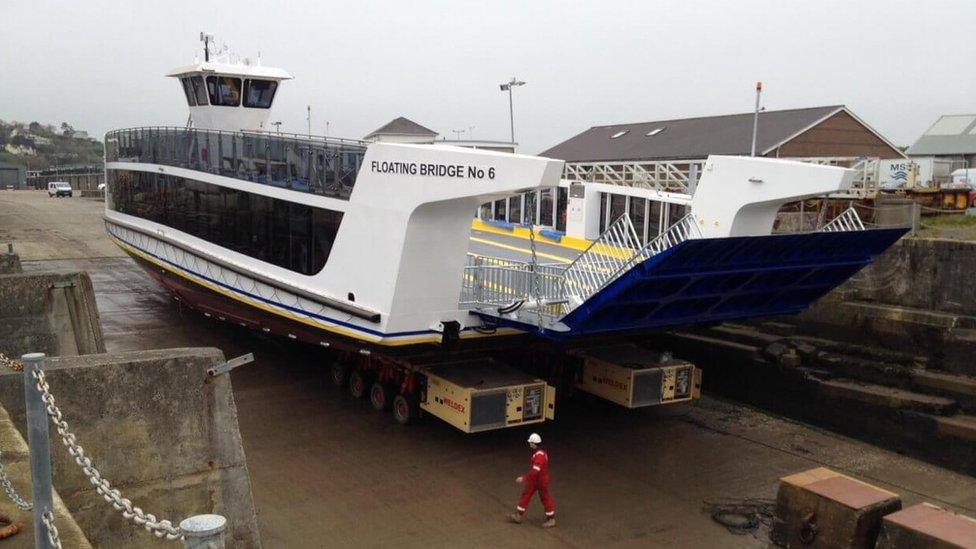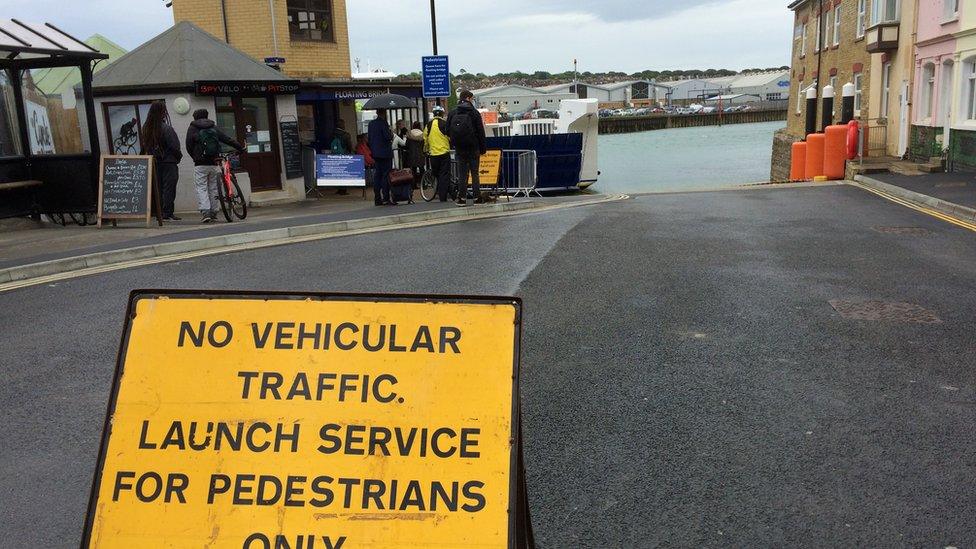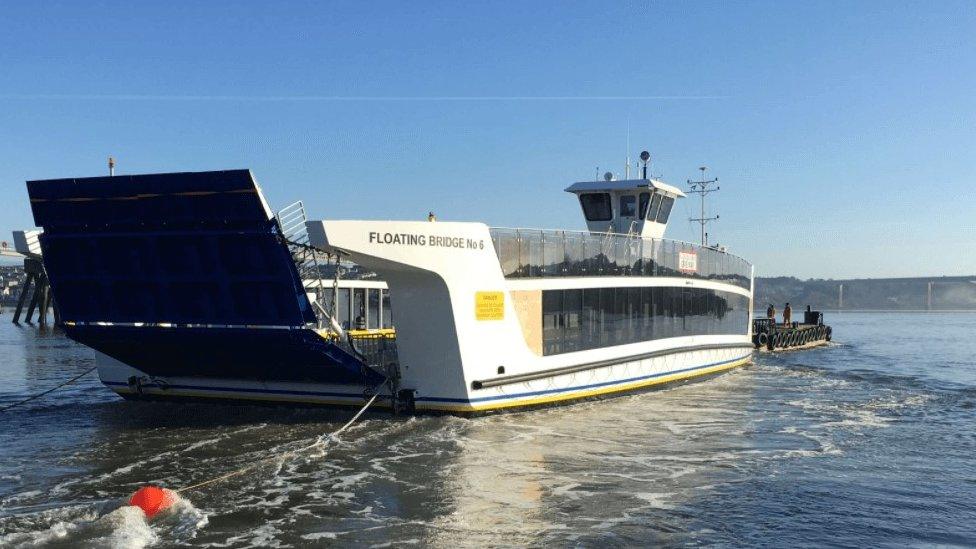Cowes Floating Bridge: Further fault found on troubled island ferry
- Published

The £3.2m vessel has had a number of technical faults and service interruptions
The Isle of Wight's troubled floating bridge will remain out of service after another fault was found.
The chain ferry returned to service on 20 October after a three-month stoppage to fix a hydraulic fault. It has broken down again twice since.
It had been due to resume on Monday but a sheared inner piston end and a fatigue crack have now been found.
The council said the vessel was being checked and would not return to service until Saturday at the earliest.
The latest issue, affecting the loading ramps, was not connected to the hydraulic problem which was picked up during routine maintenance in July.

A hydraulic problem was found during routine maintenance in July
Speaking at a council committee meeting on Tuesday, Isle of Wight council leader, Dave Stewart, said: "It is very disappointing that the service was taken out in the first two weeks it was back."
But councillor Karl Love said believing the problems could be fixed no matter what was "institutional blindness", according to the BBC's Local Democracy Reporting Service (LDRS).
He said: "My residents just want this fixed like everybody else and fixed sooner rather than later."

When the ferry is out of action a launch boat is used to ferry foot passengers, while drivers face an 11-mile (18km) detour via Newport
The ferry, which crosses the River Medina between Cowes and East Cowes, has faced a catalogue of glitches since entering service in May 2017.
The council has been in legal discussions about the issues and Mr Stewart asked committee members for a list of questions regarding the latest problems.
When the ferry is out of service, a launch boat ferries foot passengers, while vehicles face a 11-mile (18km) detour via Newport.
A push-boat is also being used to keep the vessel at the right level during fast-flowing spring tides, costing £97,000 a year.
- Published7 November 2020

- Published20 October 2020

- Published7 October 2020

- Published29 September 2020

- Published10 September 2020

- Published9 August 2020

- Published5 August 2020

- Published23 October 2019

- Published30 September 2019
